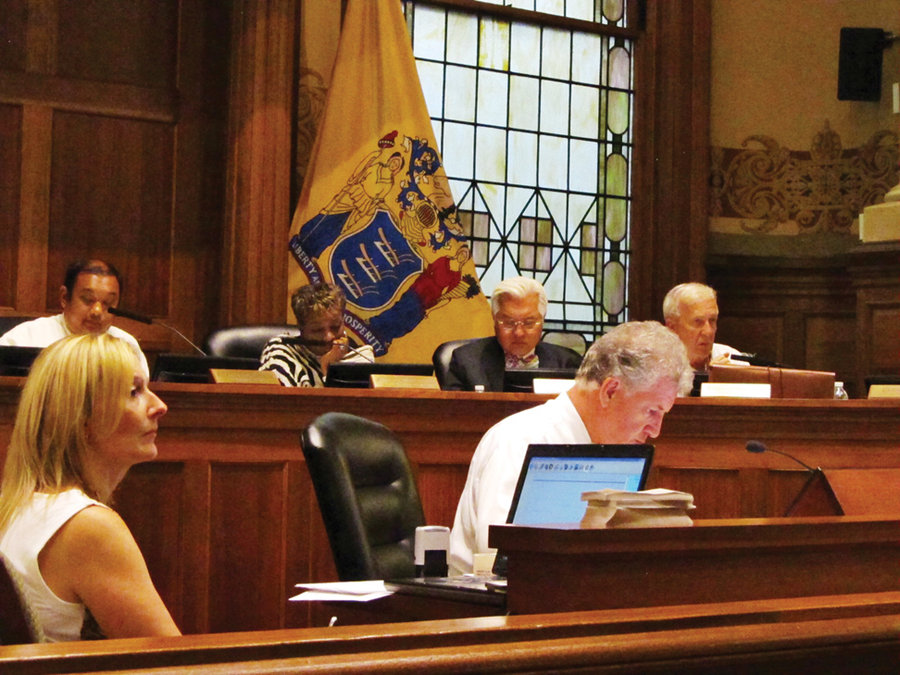A package of ordinances about farmers’ markets in the city will be up for a public hearing and adoption before the City Council on Oct. 7.
The ordinances would expand access to healthy food options by revising the City’s Farmers’ Market policies to make seasons and hours of operation uniform across the city, provide an easier permitting process, and expand the locations where farmers’ markets can operate.
A fourth ordinance for food vendors who operate at festivals and events throughout the city will be introduced at the same meeting.
According to Margaret D’Amico, policy coordinator for the city’s department of Human Services, some markets that have opened up around the city over the last year were technically not legal under former ordinances which allowed markets to open only in specific parks. The new ordinances would rectify this and set up criteria for the kinds of foods that must be provided, especially foods that can be purchased with food stamps or other vouchers.
D’Amico said the city has surveyed the organizers of markets throughout the city about what they need and what problems can be resolved.
“Our farmers’ markets provide residents with healthy, affordable access to fresh produce and have been growing throughout the city.” – Mayor Steve Fulop.
____________
More markets took root
In Jersey City, the number of farmers’ markets grew this year from five to eight, a 60 percent increase. The Department of Health and Human Services hopes to add two new markets in the coming year, in Ward A and Ward F.
The Law Department and the Department of Health and Human Services collaborated on the new ordinances. The Health Department worked closely with the market organizers, farmers, the Special Improvement Districts, and community groups, and researched how farmers’ markets operate in other major cities to develop the new Farmers’ Market ordinances.
“Our farmers’ markets provide residents with healthy, affordable access to fresh produce and have been growing throughout the city,” said Mayor Steve Fulop. “To address the demand for these markets, we are streamlining the permitting process, expanding the locations where markets can be held, and establishing the Health Department as the point of contact for creating a new market.”
Rules determining where food must come from vary from market to market, said D’Amico. While most say the farms should be within 300 miles of Jersey City – a radius that allows farms from upstate New York to supply local markets – Riverview Park’s market limits it to 250 miles.
Percentage of fresh foods also varied from market to market, as well as how many of the vendors in each market took vouchers. Even the hours of markets varied.
One ordinance would amend the city rules within the Department of Public Works code to reflect more accurately the nature of farmers’ market management groups and how parks are utilized for these events. This ordinance removes a codified presumption that all Jersey City farmers’ market managers belong to the NJ Council of Farmers and Communities, and changes it simply to “a non-profit organization.”
The season will now be from April 1 to Dec. 31st and the hours are 4 to 8 p.m. on weekdays and anytime between 8 a.m. and 4 p.m. on the weekend. The focus is to ensure that all markets are open between July 1 and Nov. 30 to ensure the highest redemption of the Farmers’ Market Nutrition Program benefit vouchers to Jersey City that total approximately $105,000 a year.
Some of the markets asked the city to end the season with the conclusion of the Christmas holiday. But several council members thought this was too long.
Councilman Michael Yun was also concerned with the size of the markets and how they tended to take over public parks that should be reserved for open space.
“What good is a park if it is being taken over by vendors?” he asked.
Some changes to existing law
Another ordinance would streamline the process for obtaining a farmers’ market license. Currently, market managers must obtain licenses through the Department of Public Works as well as the Department of Health and Human Services. Furthermore, existing code stipulates that only certain designated parks in the city are permissible locations for farmers’ market operations. Under the existing code, markets at Grove Street, Journal Square, and New Jersey City University are all operating illegally since they are not located in one of the designated parks.
This ordinance puts the permitting process entirely under the purview of the Department of Health and Human Services and only requires markets to seek permission to operate in a city park. It also removes the list of designated parks, opening up the licensing process to market managers wishing to operate in a parking lot, pedestrian plaza, or other non-park public space.
This change also creates a special definition for farmers’ markets, removing them from the same category as flea markets, parades and festivals, and would allow farmers’ markets to become eligible for possible federal and state grants.
Under the new provisions, farmers’ markets in Jersey City must be run by a non-profit entity; at least 55 percent of the goods sold must be locally-grown farm produce; at least 25 percent of vendors must accept WIC, FMNP, and/or EBT benefits.
The council will likely allow markets to operate from April 1 to Thanksgiving, with market managers required to apply for a license at least 30 days before their opening date.
Al Sullivan may be reached at asullivan@hudsonreporter.com.
